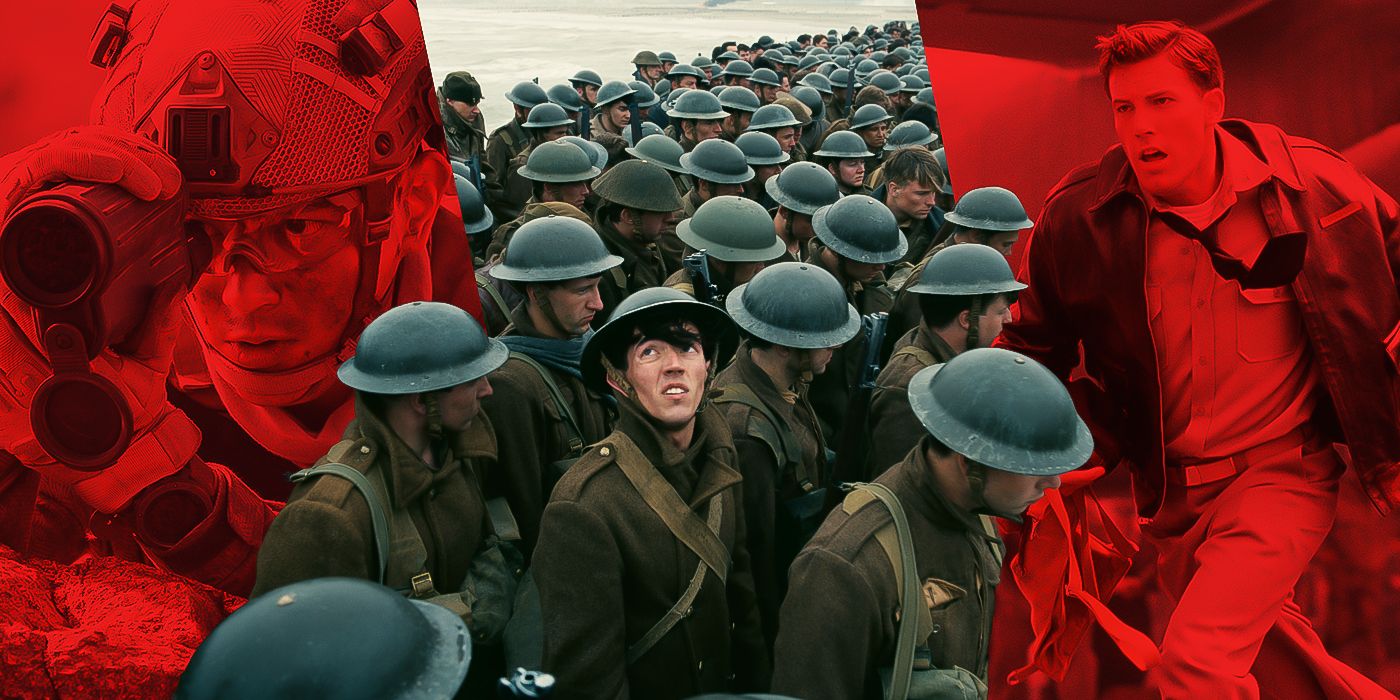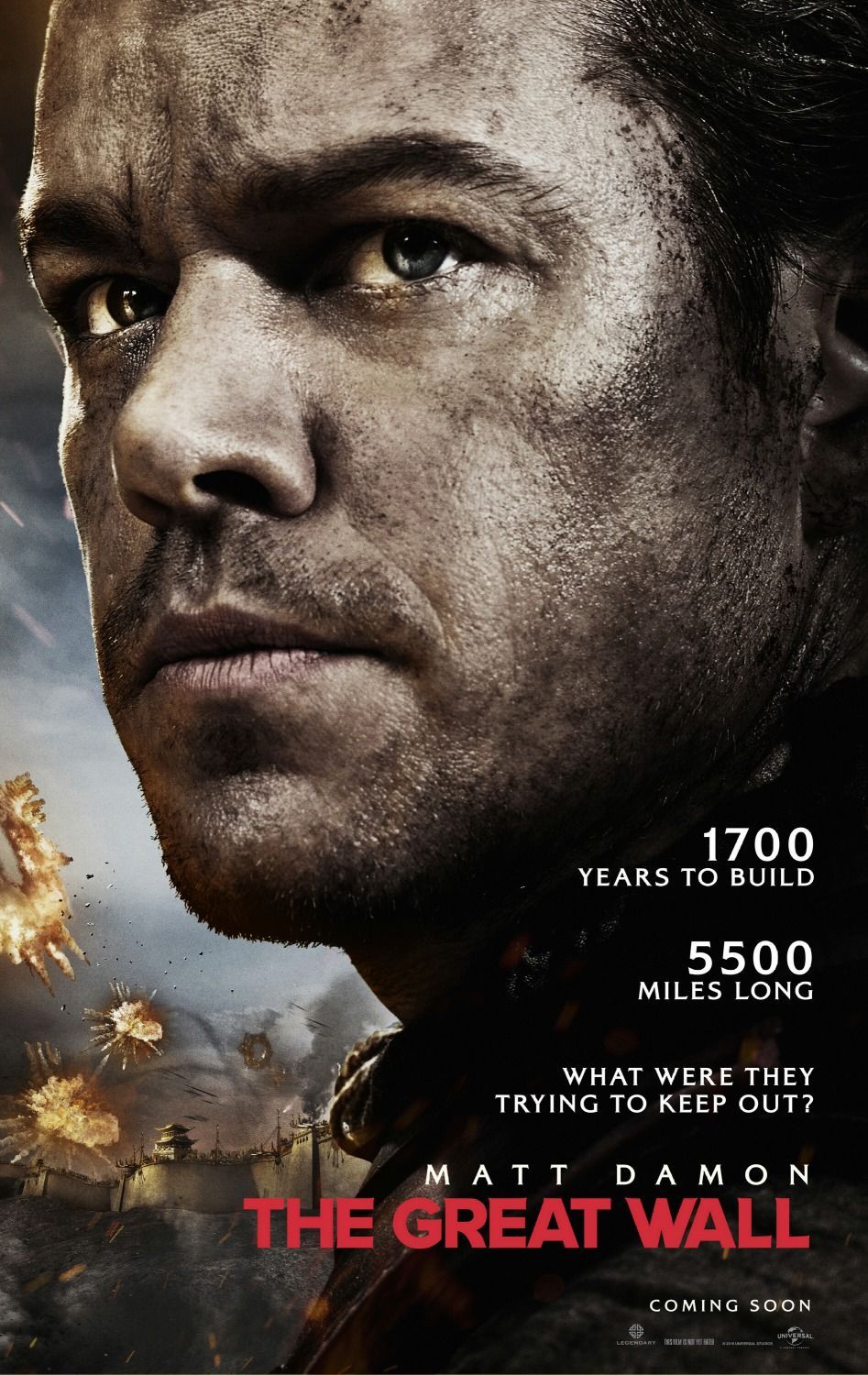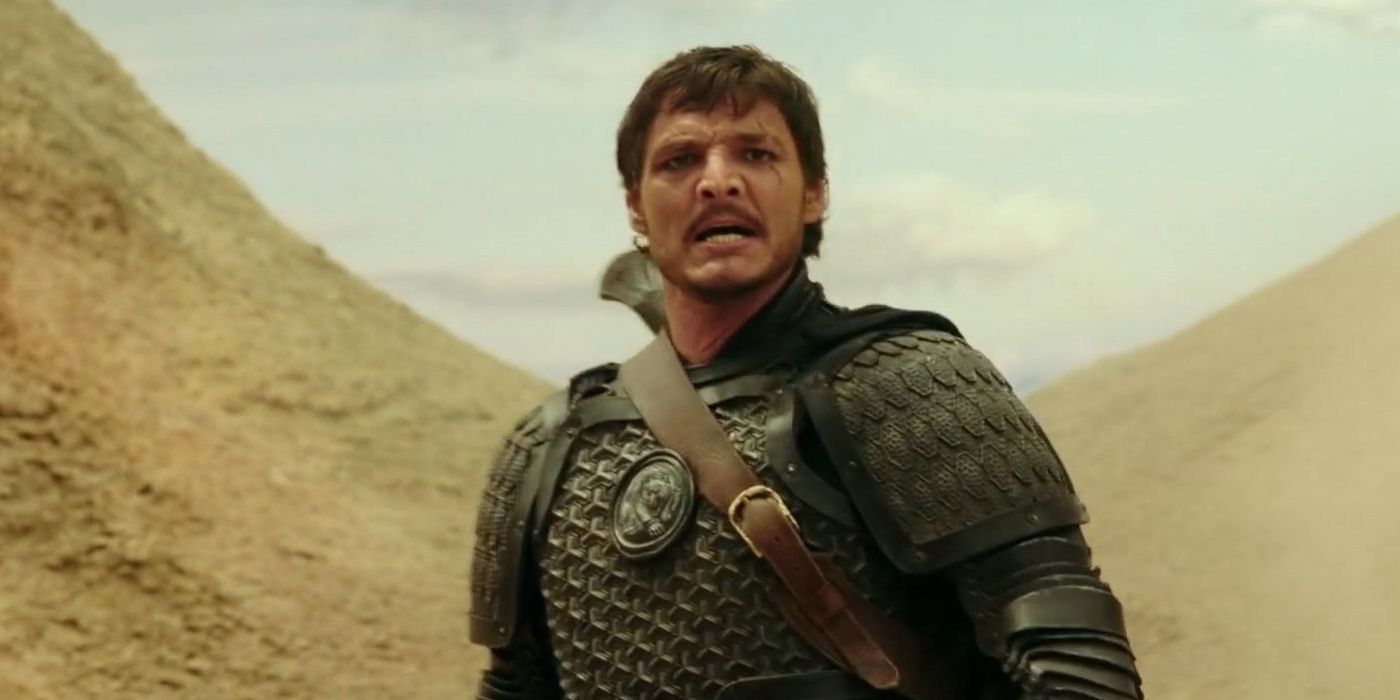China has one of the most successful and acclaimed film markets in the world, so it is deeply unfortunate that it is often a challenge for global viewers to gain access to their output. A crossover success is usually only possible if there is a seriously talented filmmaker involved, and Zhang Yimou had proven to be one of China’s most promising directors, as films like Hero and House of Flying Daggers were celebrated as some of the greatest achievements in modern action. However, making a film intended to reach a global audience can lead to some appeasements that court controversy, as it can often be a challenge to reach multiple cultures. The Great Wall was one of the most significant international co-productions in modern cinematic history, but it courted controversy due to the casting of Matt Damon and Pedro Pascal.
Zhang defended the creative decisions involved, claiming that Damon’s character is one of five major heroes in the film, and he “has not and will not cast a film in a way that was untrue” within his two decades of making Chinese-language films. Zhang felt that the novelty of “a film deeply rooted in Chinese culture, with one of the largest Chinese casts ever assembled” that was “being made at tentpole scale for a world audience” would hopefully inspire “a trend that should be embraced by our industry.” Ironically, skepticism about the casting came largely from American critics who had yet to see the film; Chinese audiences had their own concerns that Zhang had dropped his interest in arthouse cinema in favor of more robust blockbusters. Despite the firestorm of controversy that it initiated, The Great Wall is an impressive achievement in spectacle that is entertaining if viewed in the right context.
What Is ‘The Great Wall’ About?
Set within the domain of Emperor Renzong during the 11th century, The Great Wall follows two European mercenaries that search through the Eastern lands for gunpowder, only to be captured by Chinese soldiers defending the Great Wall. The Irishman William Garin (Damon) and Spaniard Pero Tovar (Pascal) make contact with the Emperor (Karry Wang), who reveals a startling truth about the construction of the nation’s defense: the wall was built to defend people from a group of alien monsters called Tao Tei, which land on Earth through a meteorite after six decades. After Garin proves his worthiness to the Chinese Army by helping to save the life of the young warrior Peng Yong (Lu Han), he joins forces with Commander Lin Mae (Jing Tian) and the soldiers of the Crane Troop to mount a defense that could save the wall from devastation.
Although Damon’s prominence within the film’s marketing campaign may have led some skeptics to get the wrong idea about its perspective, The Great Wall has a robust cast of Chinese actors and shows the strength and beauty of its natural culture. Each section of the Chinese Army performs a different function, and their leaders are intended to showcase the traits that would make them most valuable. While General Zhao (Zhang Hanyu) of the Bear Troop favors a brutal, brawling approach of taking down as many enemy combatants as possible, Mae’s strategy involves the use of acrobatic fighting skills that save lives. Despite the inherent silliness of the premise, the film shines a light on the outstanding developments in military strategy and technology that were developed by China before they caught on throughout the rest of the world. The use of hot air balloons in the final act is particularly noteworthy, as it shows the type of ambition that would never have been possible in an English-language film.
Did ‘The Great Wall’ Deserve the Controversy?
The Great Wall is surprisingly sensitive in how it frames Garin’s perspective, as while he joins forces and helps defend the Chinese Army, he does not add his own ideas that would replace their culture. The typical “white savior” trope involves a white character who improves and educates a group of racial or ethnic minorities that the film deems to be “lesser,” but ironically, Garin does not reach his full potential as a warrior until he sets aside his western customs and accepts the Chinese approach to warfare. The film calls attention to the fact that Chinese armies aim to work as a unit, in which the collective is more important than the individual; this sparks an interesting debate with Garin, who was familiar with the Eurocentric concept of individual war heroes that inspired others. Even if the fact that the film uses a white character as an “outsider’s perspective” to hook in an audience of non-Chinese viewers, the surprisingly cultural conversations at hand are more nuanced than some may have imagined.

Related
The 10 Highest-Grossing War Movies of All Time, Ranked
A topic that’s unfortunately, always relevant to international audiences.
While it unfortunately underperformed at the box office and failed to inspire additional international co-productions on the same scale, The Great Wall is a beautifully crafted action epic that operates on an incredible scale and offers an exciting mix of historical context and imaginative fantasy. Even though Zhang’s career rebounded quickly, as his subsequent effort Shadow was met with great acclaim, it is unfortunate that The Great Wall became such a punching bag, as Jimmy Kimmel even made a joke at its expense when hosting the Academy Awards. Even if some aspects of the mythology might be easy to lambast, The Great Wall is a rather earnest celebration of heritage that tried to find an interesting way to celebrate one of the world’s greatest man-made wonders.




